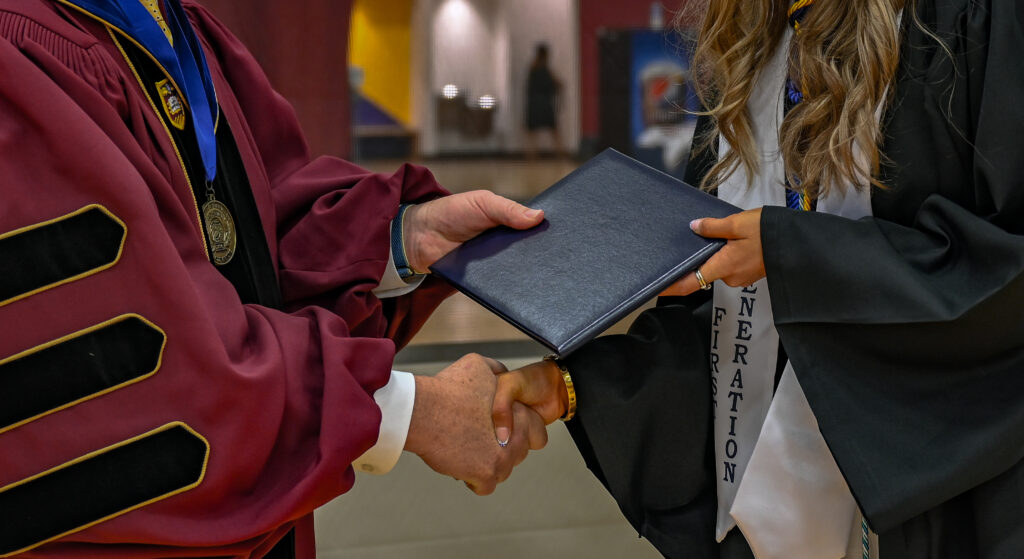
When Matthew Tiller walked across the stage at North Carolina Wesleyan University’s commencement in May 2025, he carried more than his own dreams. As a first-generation college student, he carried the hopes of his entire family.
“Being the first in my family to attend college means breaking a barrier and opening a door that was never there before, “Tiller shared. “It feels like I’ve paved a new way for my family, not just for myself.”
Tiler, who double-majored in English and Psychology, admitted that the journey was not easy. His family, though proud, did not know how to help navigate applications, deadlines, or financial aid. “Honestly, they didn’t really know how to support me, so college became a learning environment for both me and my family,” he said.
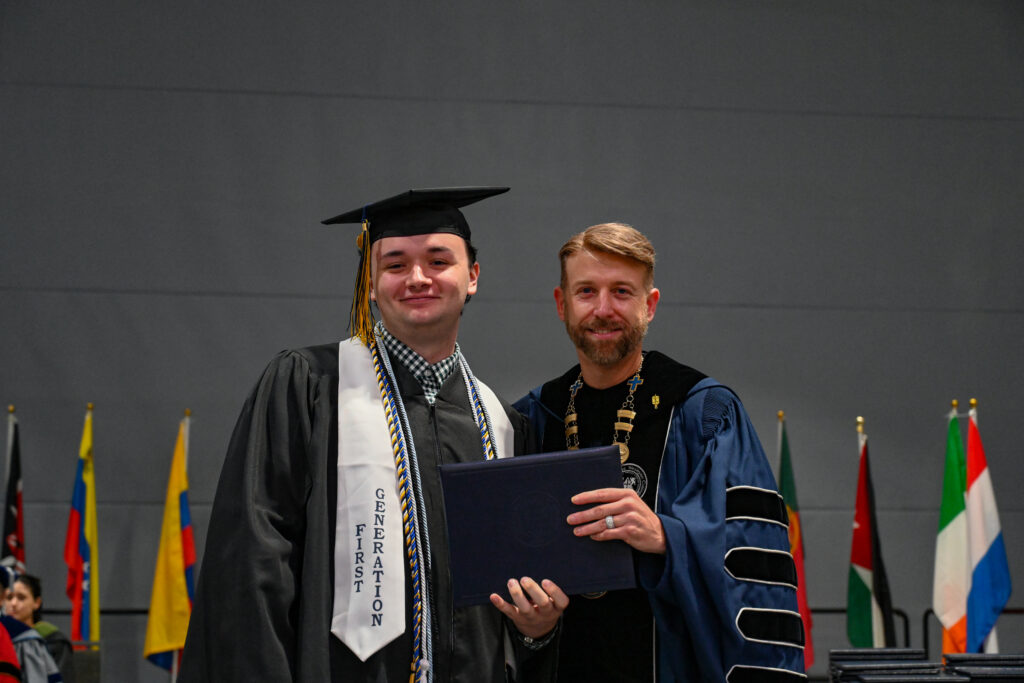
He isn’t alone. For fellow first-generation student Tamiya Rooks, a Biomedical Science major with a focus in Pre-Veterinary Medicine, the experience has also been about perseverance. “For me, being a first-generation college student means that I have managed to beat the odds,” Rooks said. “To my parents, it means that they did an amazing job with raising their children and get to see her grow more. Making them immensely proud.”
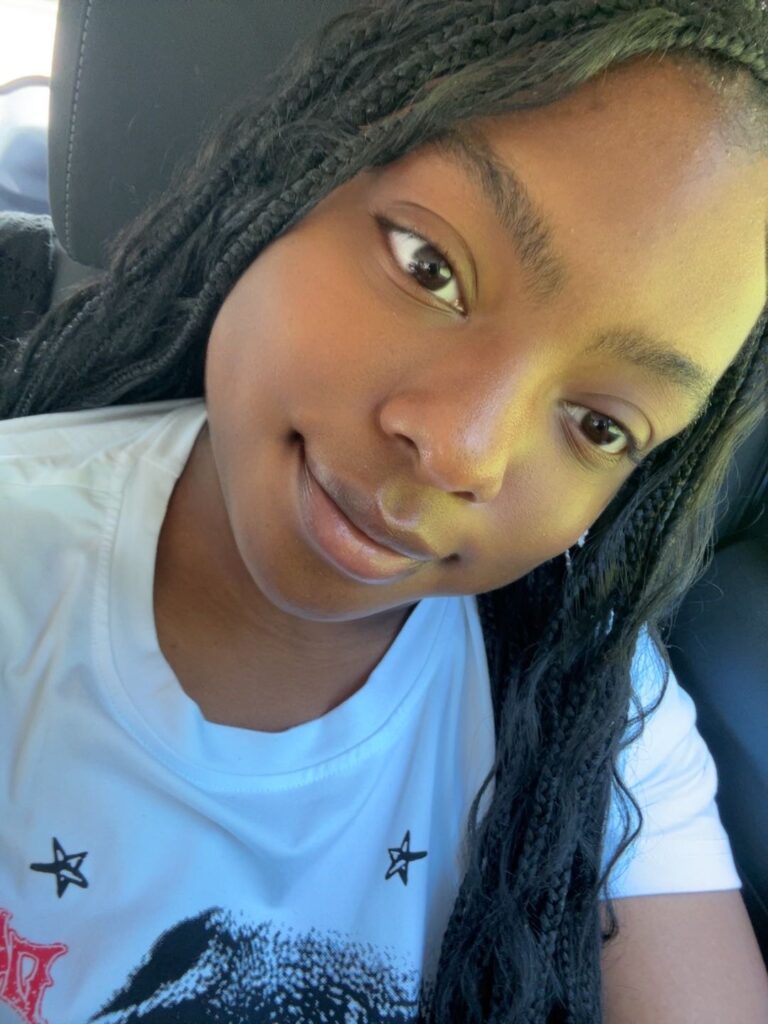
At Wesleyan, Tiller found mentors who guided him through. Professors in the English program offered academic and personal support, while supervisors in the Financial Aid office helped him grow into a leader. “Working there was more than a paycheck, it was mentorship,” he said. ‘I know I would not be the leader I am without their guidance.”
Rooks echoed that feeling of support. “Being the first in my family to go to college, I wanted a community that believed in my potential and would give me the resources to succeed, and Wesleyan offered that,” she said.
Faculty and staff play a vital role in this culture. Paige Wells, Director of the Campus Experience, knows the challenges first-generation students face because she lived them herself. “As someone who was a first-generation college student, I fully believe my personal experiences have uniquely equipped me to support students from similar backgrounds with greater empathy and intentionality,” she said. “To me, this work is more than just a job—it’s a personal mission.” Wells also notes that misconceptions about the financial side of college often discourage families. “It’s not because they don’t care—it’s simply a lack of information and familiarity with the process. That’s why it’s so important to create welcoming spaces where students and families feel safe asking questions and getting honest guidance.”
That sense of belonging doesn’t end with graduation. Wesley Mercer, now a Helpdesk Technician at NCWU, once stood where today’s first-generation students do. “I feel like a lot of people are overwhelmed or scared of the idea of going to college. When I first started as a student, the staff and faculty were much more helpful than I originally thought,” he reflected.
Today, Mercer is proud to be part of the institution that helped him succeed. “I am excited that I get to be a ‘piece of the pie’ that is Wesleyan. It is amazing to be on the other side of the institution that meant so much to me as a student. It is almost surreal to see things from the other side.”
For Mercer, the highlight of his journey remains graduation. “Knowing that I finally did it is still my proudest moment,” he said. “Even as a staff member, I always really enjoy getting to go to graduation and seeing students get their diplomas.”
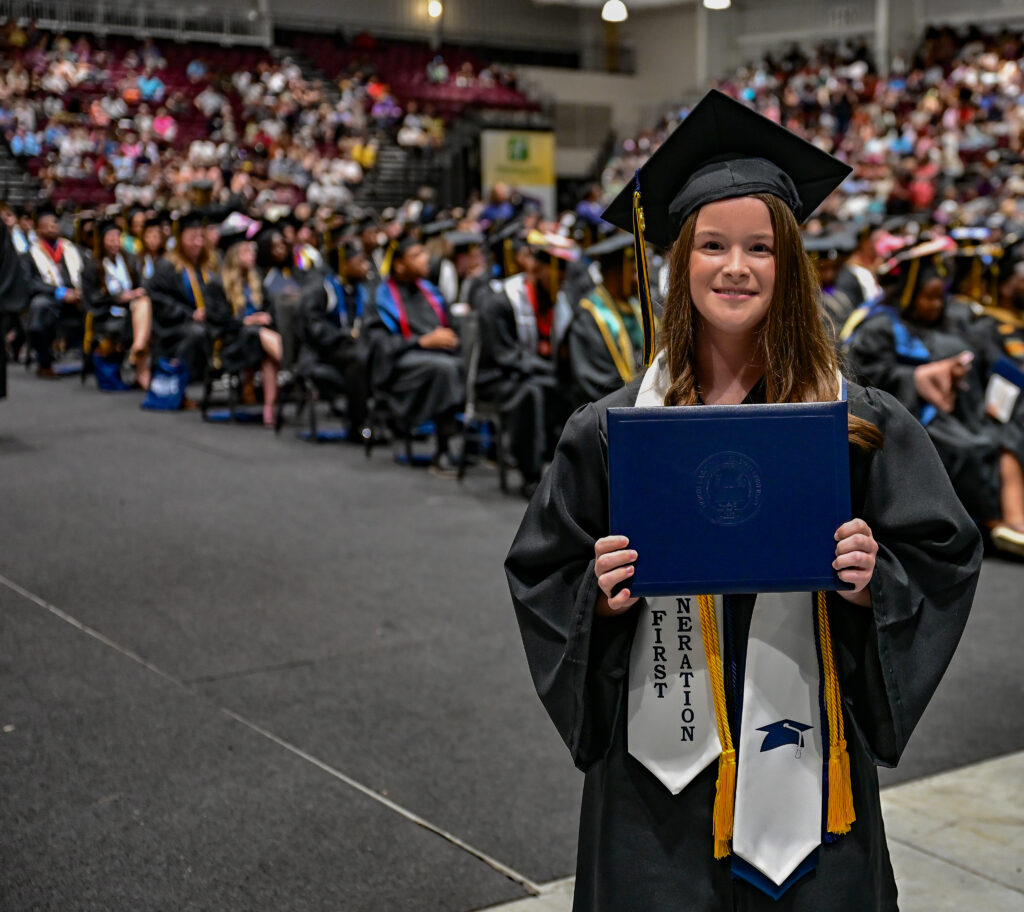
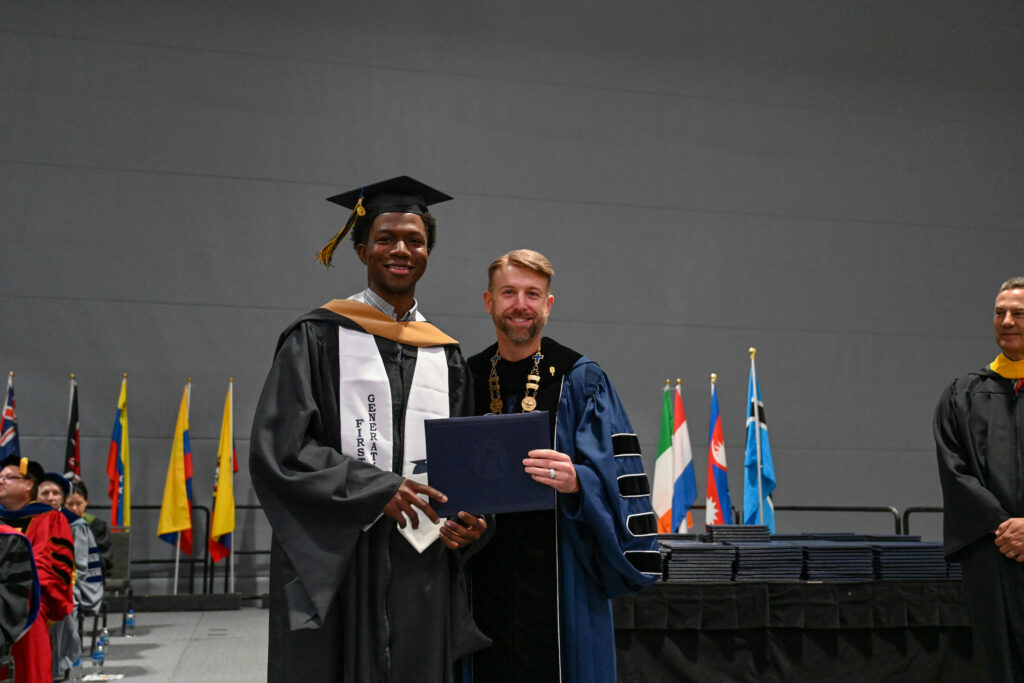
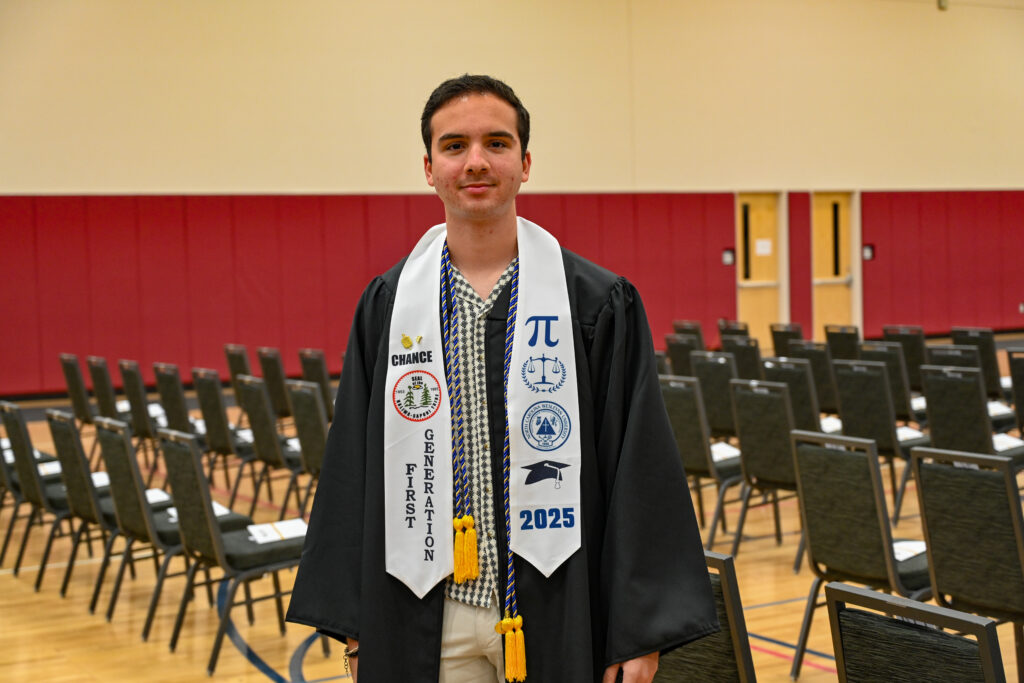
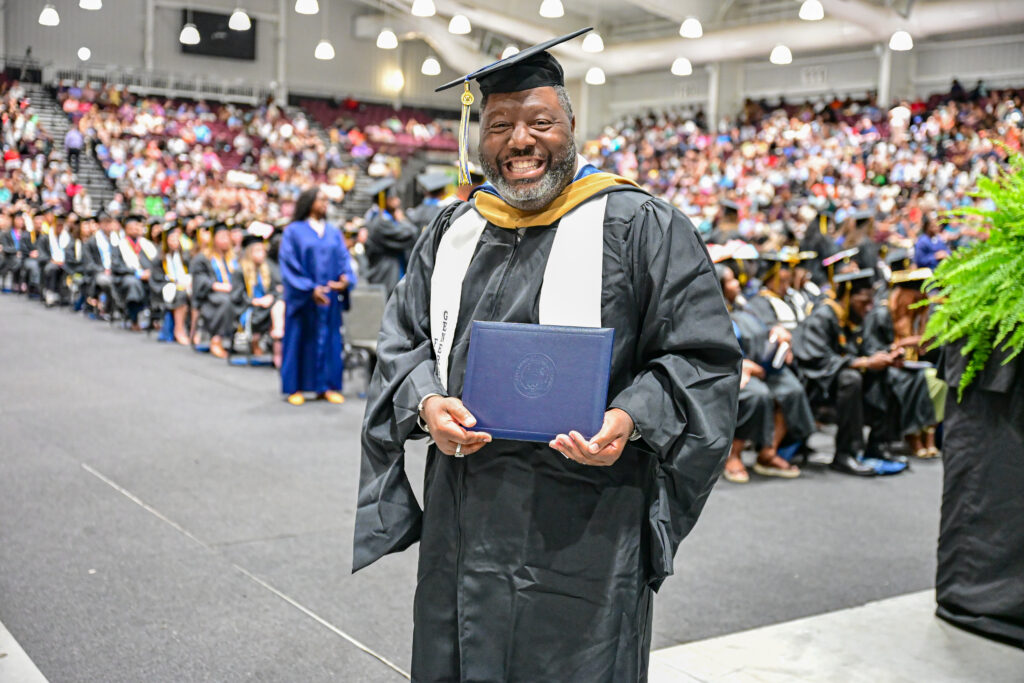
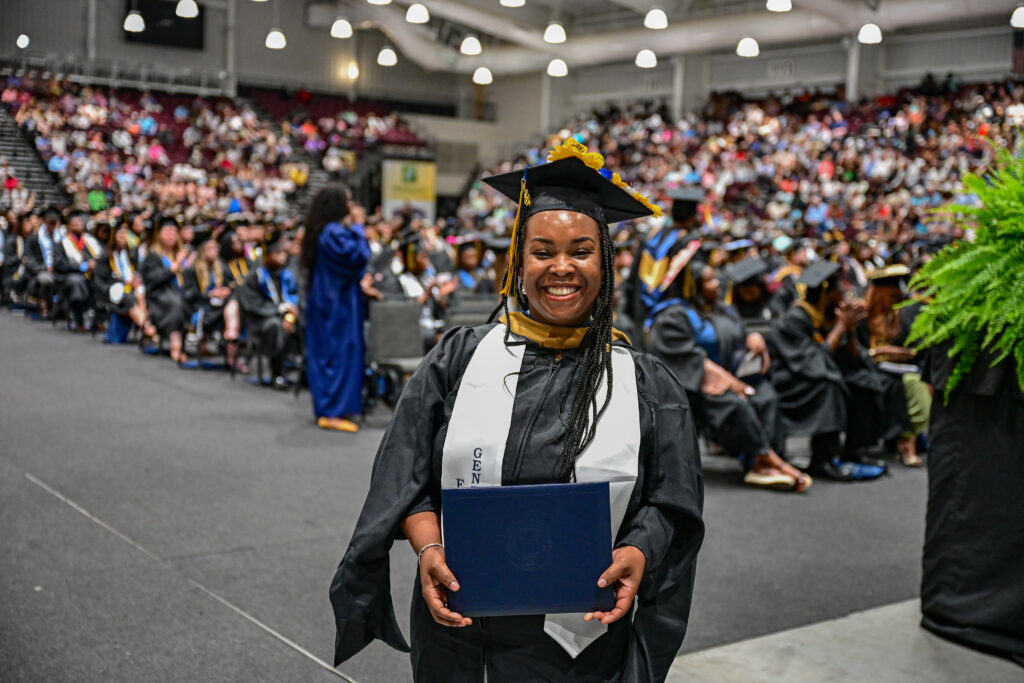
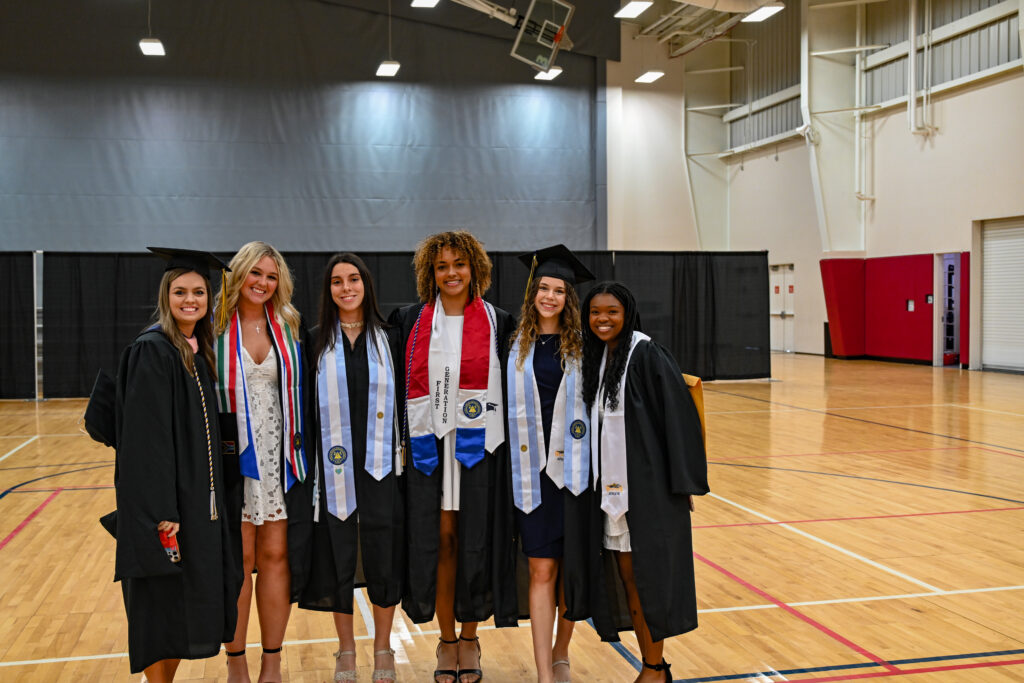
Both Tiller and Rooks admit the challenges were real. For Tiller, it meant forging ahead without a roadmap. For Rooks, it meant leaving home and stepping into the unknown. “Applying to college was the easy part really, but preparing for it was the most difficult,” she reflected. “It’s never easy to leave your home and family to go to a new place, even if it is for your benefit.”
Despite the obstacles, each points to proud milestones. Tiller cites leadership awards and internships. Rooks highlights completing her first year and joining the lacrosse team, something she had dreamed of for years. “I’ve made so many new friends who are really like family to me now, and that means so much,” she said.
Nearly 45% of Wesleyan’s student population are first-generation college students. Many faculty and staff were once first-generation themselves, making them uniquely able to mentor students like Tiller and Rooks. Wells notes that one of the biggest barriers is simply understanding the process. “One of the biggest misconceptions about college is the financial aspect, especially from the perspective of families who haven’t navigated the process before,” she said. “Many families don’t fully understand the true cost of attendance or know what questions to ask when comparing schools, which can unintentionally limit the options they consider. It’s not because they don’t care, it’s simply a lack of information and familiarity with the process. For any student, especially a first-generation student, the process can be overwhelming, and that’s why it’s so important to create welcoming spaces where students and their families feel comfortable and safe asking questions and getting honest, clear guidance.”
Looking ahead, Rooks hopes to become a veterinarian, serving her community by protecting and healing animals. “I want to show my family that dreams can be reached with dedication, and I hope to make them proud by turning my passion into a way to help others,” she said.
Supporting first-generation students is not just part of Wesleyan’s mission. It is woven into the fabric of who the university is. With nearly half its students blazing new trails, every diploma represents resilience, mentorship, and opportunity.
As Tiller puts it: “Take that leap! Do it! Be brave! The challenges are worth it, and you will always come out on top.”




